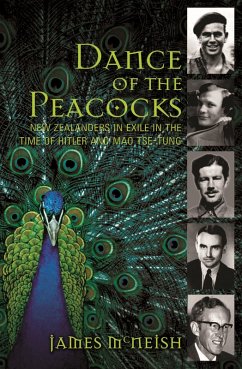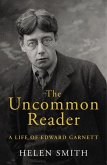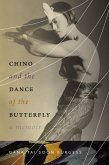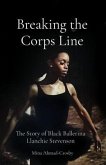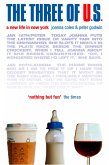James Mcneish
Dance of the Peacocks (eBook, ePUB)
New Zealanders in Exile in the Time of Hitler and Mao Tse-Tung
9,49 €
9,49 €
inkl. MwSt.
Sofort per Download lieferbar

0 °P sammeln
9,49 €
Als Download kaufen

9,49 €
inkl. MwSt.
Sofort per Download lieferbar

0 °P sammeln
Jetzt verschenken
Alle Infos zum eBook verschenken
9,49 €
inkl. MwSt.
Sofort per Download lieferbar
Alle Infos zum eBook verschenken

0 °P sammeln
James Mcneish
Dance of the Peacocks (eBook, ePUB)
New Zealanders in Exile in the Time of Hitler and Mao Tse-Tung
- Format: ePub
- Merkliste
- Auf die Merkliste
- Bewerten Bewerten
- Teilen
- Produkt teilen
- Produkterinnerung
- Produkterinnerung

Bitte loggen Sie sich zunächst in Ihr Kundenkonto ein oder registrieren Sie sich bei
bücher.de, um das eBook-Abo tolino select nutzen zu können.
Hier können Sie sich einloggen
Hier können Sie sich einloggen
Sie sind bereits eingeloggt. Klicken Sie auf 2. tolino select Abo, um fortzufahren.

Bitte loggen Sie sich zunächst in Ihr Kundenkonto ein oder registrieren Sie sich bei bücher.de, um das eBook-Abo tolino select nutzen zu können.
I came to Dance of the Peacocks with high expectations, but they were far exceeded by the book itself. It held me like a good novel . . . moved me more than most novels; and has haunted me since.
- Geräte: eReader
- mit Kopierschutz
- eBook Hilfe
- Größe: 9.39MB
- FamilySharing(5)
Andere Kunden interessierten sich auch für
![Where the Peacocks Sing (eBook, ePUB) Where the Peacocks Sing (eBook, ePUB)]() Alison Singh GeeWhere the Peacocks Sing (eBook, ePUB)6,99 €
Alison Singh GeeWhere the Peacocks Sing (eBook, ePUB)6,99 €![Tales of a Tiller Girl Part 2 of 3 (eBook, ePUB) Tales of a Tiller Girl Part 2 of 3 (eBook, ePUB)]() Irene HollandTales of a Tiller Girl Part 2 of 3 (eBook, ePUB)6,29 €
Irene HollandTales of a Tiller Girl Part 2 of 3 (eBook, ePUB)6,29 €![The Uncommon Reader (eBook, ePUB) The Uncommon Reader (eBook, ePUB)]() Helen SmithThe Uncommon Reader (eBook, ePUB)14,99 €
Helen SmithThe Uncommon Reader (eBook, ePUB)14,99 €![Chino and the Dance of the Butterfly (eBook, ePUB) Chino and the Dance of the Butterfly (eBook, ePUB)]() Dana Tai Soon BurgessChino and the Dance of the Butterfly (eBook, ePUB)8,95 €
Dana Tai Soon BurgessChino and the Dance of the Butterfly (eBook, ePUB)8,95 €![Breaking the Corps Line (eBook, ePUB) Breaking the Corps Line (eBook, ePUB)]() Mina Ahmad-CrosbyBreaking the Corps Line (eBook, ePUB)3,99 €
Mina Ahmad-CrosbyBreaking the Corps Line (eBook, ePUB)3,99 €![The Three of U.S. (eBook, ePUB) The Three of U.S. (eBook, ePUB)]() Joanna ColesThe Three of U.S. (eBook, ePUB)4,99 €
Joanna ColesThe Three of U.S. (eBook, ePUB)4,99 €![Tales of a Tiller Girl Part 3 of 3 (eBook, ePUB) Tales of a Tiller Girl Part 3 of 3 (eBook, ePUB)]() Irene HollandTales of a Tiller Girl Part 3 of 3 (eBook, ePUB)6,29 €
Irene HollandTales of a Tiller Girl Part 3 of 3 (eBook, ePUB)6,29 €-
-
-
I came to Dance of the Peacocks with high expectations, but they were far exceeded by the book itself. It held me like a good novel . . . moved me more than most novels; and has haunted me since.
Dieser Download kann aus rechtlichen Gründen nur mit Rechnungsadresse in A, B, BG, CY, CZ, D, EW, E, FIN, F, GR, H, I, LT, L, LR, M, NL, PL, P, R, SLO, SK ausgeliefert werden.
Produktdetails
- Produktdetails
- Verlag: Penguin Random House NZ
- Seitenzahl: 480
- Erscheinungstermin: 1. März 2013
- Englisch
- ISBN-13: 9781869796624
- Artikelnr.: 38434637
- Verlag: Penguin Random House NZ
- Seitenzahl: 480
- Erscheinungstermin: 1. März 2013
- Englisch
- ISBN-13: 9781869796624
- Artikelnr.: 38434637
- Herstellerkennzeichnung Die Herstellerinformationen sind derzeit nicht verfügbar.
James McNeish, novelist, playwright and biographer, lives in New Zealand. He is the author of over 25 books and plays, and his work has received acclaim both in New Zealand and internationally. In the 1960s he worked in London's Theatre Workshop, known for its socially committed drama, wrote and presented feature and documentary programmes for BBC Radio, and wrote for The Guardian and The Observer. As critic Denis Welsh has observed, the 'themes close to the writer's heart [are] the nature of justice, the quest for truth, race relations, prison rehabilitation, and the reliability of memory'. In 2010 he received the Prime Minister's Award for Literary Achievement in Non-Fiction. He was knighted for services to literature in 2011. The New Zealand Listener noted that McNeish's standing is 'perhaps unique among New Zealand writers in the facility with which he has moved back and forth between fiction and non-fiction', while The New Zealand Herald has identified him as 'A major figure in New Zealand literature . . . His writing is masterful, his attention to detail and his ear for long-ago conversations extraordinary. Most of all, he writes with an emotion that touches the spirit.' In an interview in Weekend (26 June 2010), McNeish admitted: 'I've always been an outsider, and I'm quite comfortable with that. To retain your critical sense in a small society like New Zealand, you have to stand apart.' Touchstones, described in D Scene as 'part autobiography, part reverie, part family history but entirely entertaining', met with critical acclaim, and won over a new generation of readers. 'Like a bird migrating into the past, James McNeish touches down on moments, hovers over their meanings, then hurries on in this nimble narrative. As a first-time reader of McNeish, Touchstones . . . left me wanting to read more.' - Capital Times As many reviewers have commented, Touchstones offers not just an insight into the origins of McNeish the writer, but also encapsulates his modus operandi: 'This enchanting work . . . offers snippets of a rich, well-told life story . . .Touchstones are vignettes; half-remembered encounters and never to be forgotten moments. It is a book which roams widely, but never loses its direction. It offers glimpses, but makes you feel you have a sense of the whole of the man. It's a wee gem of a book,' D Scene wrote. In reviewing Touchstones, New Zealand Books said 'the voice in which it is written - compassionate, humorous, knowledgeable, sane, wise - has been distilled out of a lifetime of action and commitment, an engagement with the real world, a conviction that writing isn't something that exists for itself but as a tool with which we can make change happen. Such voices are rare and now, more than ever, we need them - as much as we need the very air we breathe.' The reviewer went on to say: 'One of the enticing things about McNeish as a writer is, precisely, his ambivalence as to whether he really does want to know all; along with a suspicion that such knowledge may not finally be possible: his innate scepticism, mixed with an insatiable curiosity, makes an unlikely thriller out of his inquiry into the most of ordinary of circumstances.' McNeish told the Christchurch Weekend Press that Touchstones is 'a kind of disguised autobiography, a bit like Dan Davin's Closing Times', sharing that memoir's focus not on the writer but on important people in his life, and also, in McNeish's case, on an important place.
